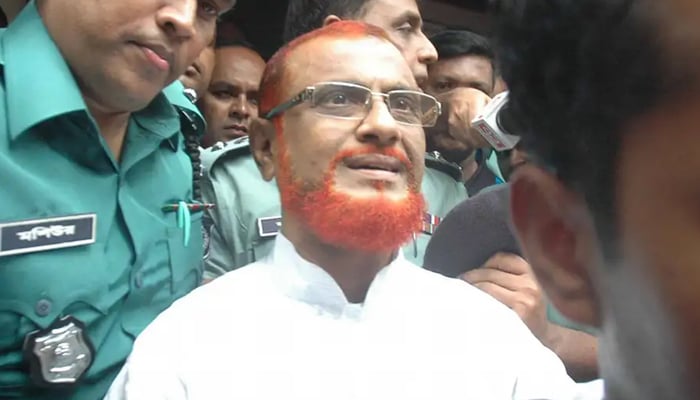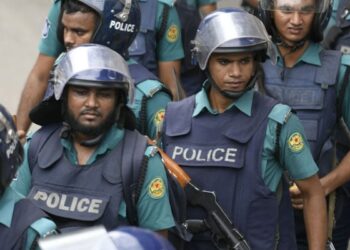Select Language:
- Islam’s attorney, Shishir Monir, expresses that Islam is “fortunate.”
- Five other leaders convicted during Hasina’s administration have been executed.
- Islam received justice because he is alive, Monir states.
On Tuesday, Bangladesh’s highest court cleared a pivotal leader of the nation’s primary right-wing party, who had been facing the death penalty since a conviction handed down under the regime that was ousted last year.
A.T.M. Azharul Islam, a member of the Jamaat-e-Islami party, had been in detention since 2012 but was exonerated of crimes against humanity by the Supreme Court, which ordered his release.
Born in 1952, Islam was one of six top political figures convicted during the rule of Sheikh Hasina, whose lengthy 15-year regime as prime minister ended in August 2024 following a student-led uprising that forced her to flee.
Political groups, including Jamaat-e-Islami, are preparing for highly anticipated elections that the interim government has promised will occur by June 2026 at the latest.
Islam’s lawyer, Shishir Monir, remarked that he was “fortunate,” especially since five other senior political leaders—four from Jamaat-e-Islami and one from the main opposition party, the Bangladesh National Party (BNP)—had already been executed.
“He received justice because he is still alive,” Monir told reporters. “The appellate court did not adequately review the evidence in other similar cases involving crimes against humanity.”
Islam had been sentenced to death in 2014 for allegations of rape, murder, and genocide that occurred during Bangladesh’s independence conflict with Pakistan in 1971.
‘Seek Your Forgiveness’
Jamaat-e-Islami was the political adversary of Hasina’s father, Sheikh Mujibur Rahman, who became the founding leader of Bangladesh.
During her tenure, Hasina prohibited Jamaat-e-Islami and took strong action against its leaders.
Islam submitted an appeal in 2015, but the court upheld the ruling in 2019, leading him to file a petition for a review in 2020.
After fleeing to India last year as protestors stormed her residence, Hasina now lives in self-imposed exile, with her Awami League party no longer allowed to operate.
She has defied a request from Dhaka to return and face charges of crimes against humanity linked to a crackdown that resulted in the deaths of at least 1,400 protesters during her unsuccessful bid to maintain power.
With Hasina gone, Islam submitted another appeal on February 27. On Tuesday, the Supreme Court, led by Chief Justice Syed Refaat Ahmed, cleared him of all charges.
Supporters of Jamaat-e-Islami expressed their joy. Leader Shafiqur Rahman highlighted that the party remembers those who were executed.
“They were victims of judicial killings,” he asserted. “Had they been alive today, they could have steered the nation in the right direction. Their contributions will be remembered by the people.”
Amidst the political turmoil, opponents of Jamaat-e-Islami have questioned its historical role. Rahman stated, “We, whether as individuals or a party, are not above making mistakes,” without elaborating further and declined to answer questions.
“We seek your forgiveness if we have committed any wrongs.”






